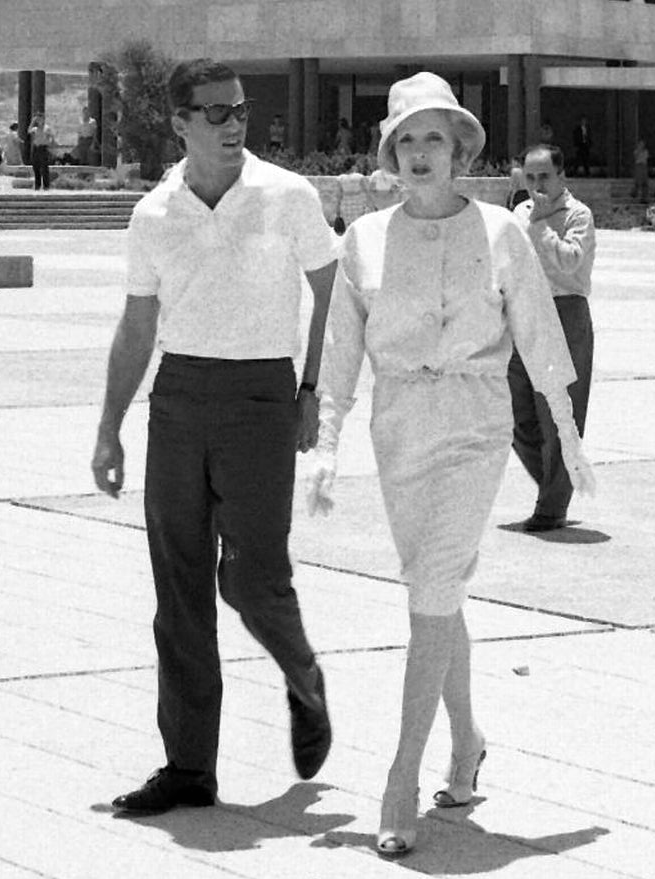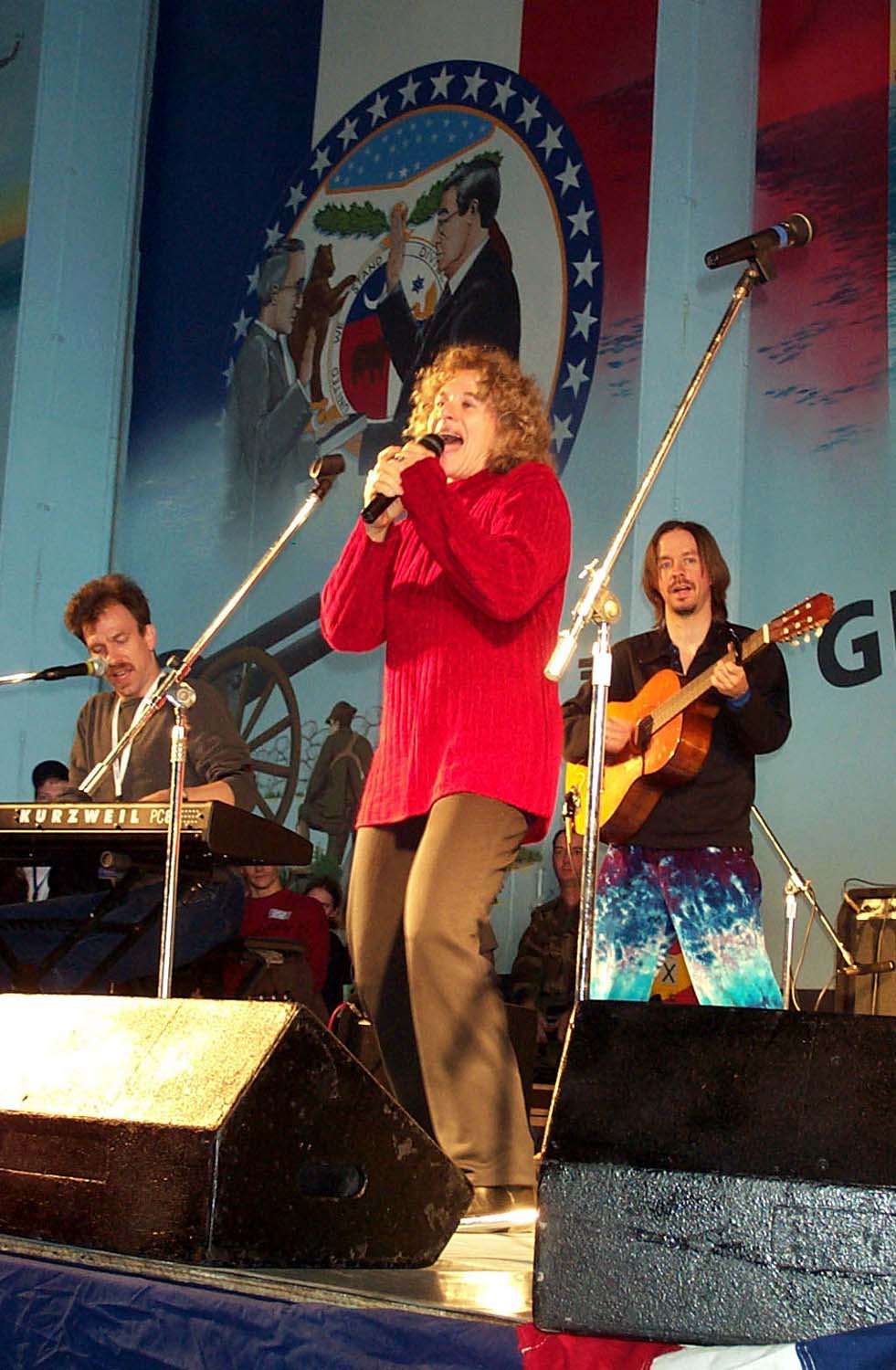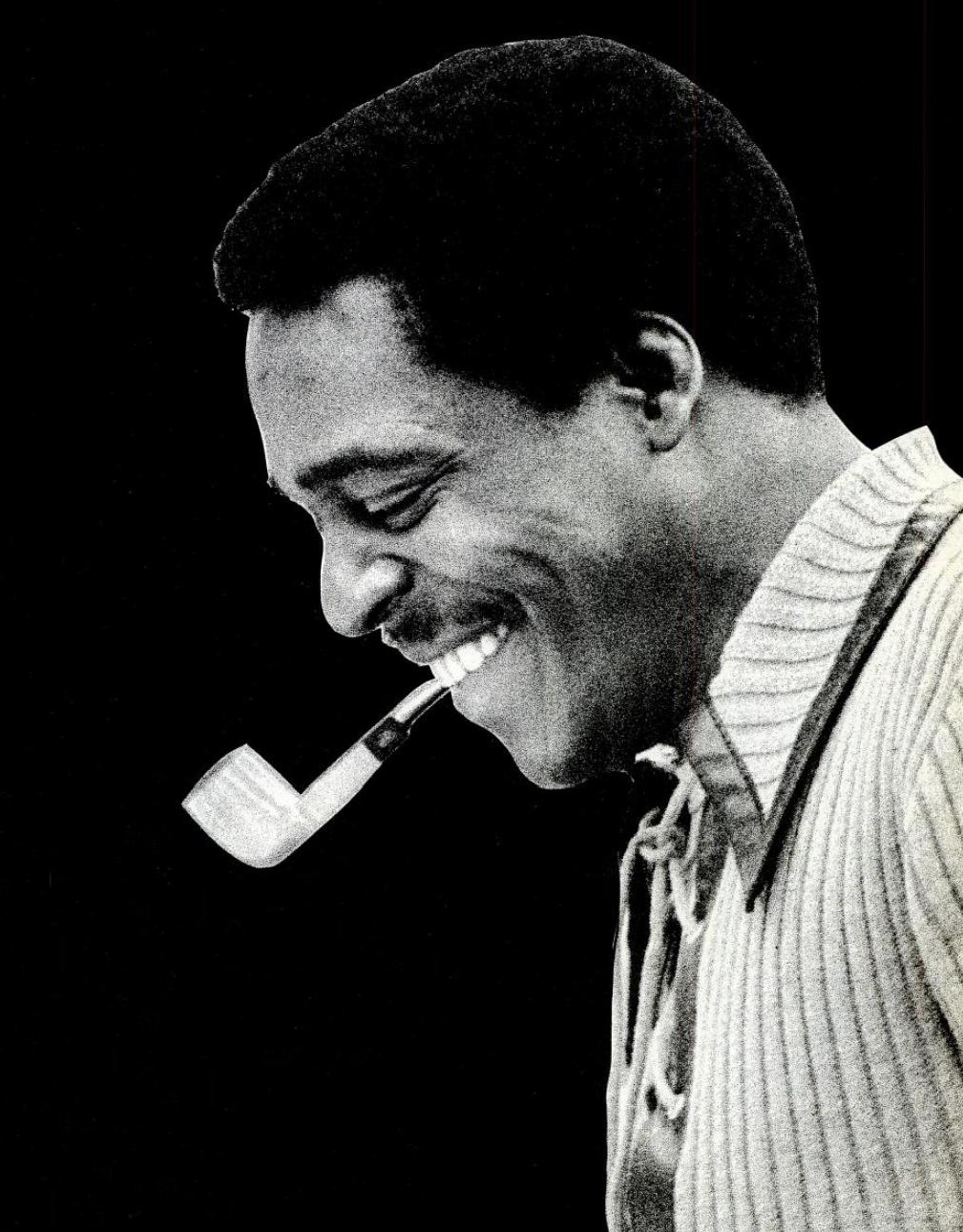|
Wax Museum (Jay And The Americans Album)
''Wax Museum'' is the eighth studio album by Jay and the Americans released on February 28, 1970. The album went to #105 on the ''Billboard'' 200 chart, reached #68 on the '' Cashbox'' chart, and #71 in Canada. The album was the group's last charting album. The group's cover of The Ronettes' song " Walkin' in the Rain" hit #19 on the ''Billboard'' Hot 100 in 1970, and #17 in Canada. Track listing # " Walkin' in the Rain" (Barry Mann, Phil Spector, Cynthia Weil) # "Do I Love You?" (Peter Andreoli, Vini Poncia, Phil Spector) # "Johnny B. Goode" (Chuck Berry) # "Message to Martha (Kentucky Bluebird)" (Burt Bacharach, Hal David) # "Room Full of Tears" (Doc Pomus, Mort Shuman) # "A Lover's Question" (Brook Benton, Jimmy T. Williams) # " Some Kind of Wonderful" (Gerry Goffin, Carole King) # "This Is My Love" (Billy Dawn Smith) # " Let It Be Me" (Gilbert Bécaud, Mann Curtis, Pierre Delanoë) # "I Don't Want to Cry" (Luther Dixon, Chuck Jackson) # " You Were on My Mind" (Sylvia Fri ... [...More Info...] [...Related Items...] OR: [Wikipedia] [Google] [Baidu] |
Jay And The Americans
Jay and the Americans are an American rock group who formed in the late 1950s. Their initial line-up consisted of John "Jay" Traynor, Howard Kane (born Howard Kirschenbaum), Kenny Vance (born Kenneth Rosenberg) and Sandy Deanne (born Sandy Yaguda), though their greatest success on the charts came after Traynor had been replaced as lead singer by Jay Black. Biography Early years They were discovered while performing in student venues at New York University in the late 1950s. They auditioned for Leiber and Stoller, who gave the group its name. Career pinnacle Soon they signed with United Artists Records. With Jay Traynor singing lead, they first hit the Billboard charts in 1962 with the tune " She Cried", which reached #5 (later covered by The Shangri-Las, Aerosmith, and others). The next two singles did not fare as well, and Traynor left the group. Empires' guitarist Marty Sanders (né Kupersmith) joined the group. He brought David Black (né Blatt) of "The Empires" in to ta ... [...More Info...] [...Related Items...] OR: [Wikipedia] [Google] [Baidu] |
Burt Bacharach
Burt Freeman Bacharach ( ; born May 12, 1928) is an American composer, songwriter, record producer and pianist who composed hundreds of pop songs from the late 1950s through the 1980s, many in collaboration with lyricist Hal David. A six-time Grammy Award winner and three-time Academy Award winner, Bacharach's songs have been recorded by more than 1,000 different artists. , he had written 73 US and 52 UK Top 40 hits. He is considered one of the most important composers of 20th-century popular music. His music is characterized by unusual chord progressions, influenced by his background in jazz harmony, and uncommon selections of instruments for small orchestras. Most of Bacharach and David's hits were written specifically for and performed by Dionne Warwick but earlier associations (from 1957 to 1963) saw the composing duo work with Marty Robbins, Perry Como, Gene McDaniels and Jerry Butler. Following the initial success of these collaborations, Bacharach went on to write hits for ... [...More Info...] [...Related Items...] OR: [Wikipedia] [Google] [Baidu] |
Chuck Jackson
Chuck Jackson (born July 22, 1937) is an American R&B singer who was one of the first artists to record material by Burt Bacharach and Hal David successfully. He has performed with moderate success since 1961. His hits include "I Don't Want to Cry," " Any Day Now," "I Keep Forgettin'", and "All Over the World". Career Jackson was born in Winston-Salem, North Carolina in 1937. He grew up in Latta, South Carolina, where he sang in a gospel group, until moving to Pittsburgh, Pennsylvania at age 13. Between 1957 and 1959, he was a member of The Del-Vikings, singing lead on the 1957 release "Willette." After leaving them, he was "discovered" by Luther Dixon when he opened for Jackie Wilson at the Apollo Theater. He signed a recording contract with Scepter Records subsidiary Wand Records. "I Don't Want to Cry," his first single, which he co-wrote (with Luther Dixon) and recorded in November 1960, was his first hit (released in January 1961). The song charted on both the R&B and p ... [...More Info...] [...Related Items...] OR: [Wikipedia] [Google] [Baidu] |
Luther Dixon
Luther Dixon (August 7, 1931 – October 22, 2009) was an American songwriter, record producer, and singer. Dixon's songs achieved their greatest success in the 1950s and 1960s, and were recorded by Elvis Presley, the Beatles, the Jackson 5, B.B. King, Jerry Lee Lewis, Dusty Springfield, Jimmy Reed and others. As a producer, Dixon helped create the signature sound of the girl group the Shirelles. Early life Dixon was born in Jacksonville, Florida, but his family moved to Brooklyn, New York, when he was young. He learned to sing in church. Career Dixon began his professional career in 1954 with the Four Buddies, a doo-wop group led by Larry Harrison, in which Dixon sang baritone and occasionally played guitar. The Four Buddies recorded for Savoy Records, but also as the Barons for Decca Records and as The Buddies for Glory Records. The group disbanded in 1955, but Dixon and Harrison continued writing songs together. Their biggest hit was "Why Baby Why", recorded by Pat Boo ... [...More Info...] [...Related Items...] OR: [Wikipedia] [Google] [Baidu] |
Pierre Delanoë
Pierre Delanoë (16 December 1918 – 27 December 2006), born Pierre Charles Marcel Napoléon Leroyer in Paris, France, was a French lyricist who wrote thousands of songs for dozens of singers, including Dalida, Edith Piaf, Charles Aznavour, Petula Clark, Johnny Hallyday, Joe Dassin, Michel Sardou and Mireille Mathieu. Delanoë was his grandmother's maiden name. Career Following obtaining a law degree, Delanoë began a career as a tax collector, and later a tax inspector. After World War II, he met Gilbert Bécaud and began working as a lyricist. For a period, he even performed alongside Bécaud in clubs. They penned some of France's most beloved songs, including "Et maintenant", translated into English as " What Now My Love", which was covered by artists including Agnetha Fältskog, Elvis Presley, Frank Sinatra, Barbra Streisand, the Supremes, Sonny & Cher, Herb Alpert & the Tijuana Brass and the Temptations. "Je t'appartiens" (" Let It Be Me") was covered by the Everly Brothers ... [...More Info...] [...Related Items...] OR: [Wikipedia] [Google] [Baidu] |
Gilbert Bécaud
Gilbert Bécaud (, 24 October 1927 – 18 December 2001) was a French singer, composer, pianist and actor, known as "Monsieur 100,000 Volts" for his energetic performances. His best-known hits are "Nathalie" and "Et maintenant", a 1961 release that became an English language hit as " What Now My Love". He remained a popular artist for nearly fifty years, identifiable in his dark blue suits, with a white shirt and "lucky tie"; blue with white polka dots. When asked to explain his gift he said, "A flower doesn't understand botany." His favourite venue was the Paris Olympia under the management of Bruno Coquatrix. He debuted there in 1954 and headlined in 1955, attracting 6,000 on his first night, three times the capacity. On 13 November 1997, Bécaud was present for the re-opening of the venue after its reconstruction. Biography Born François Gilbert Léopold Silly in Toulon, France, Bécaud learned to play the piano at a young age, and then went to the Conservatoire de Nice. In ... [...More Info...] [...Related Items...] OR: [Wikipedia] [Google] [Baidu] |
Let It Be Me (The Everly Brothers Song)
"Let It Be Me" is a popular song originally published in French in 1955 as "Je t'appartiens" interpreted by Gilbert Bécaud. It became popular worldwide with an English version by the Everly Brothers and later with the duet by Betty Everett and Jerry Butler. "Je t'appartiens" "Je t'appartiens" was recorded by Gilbert Bécaud in 1955, with music by Bécaud and lyrics in French by Pierre Delanoë. It became a hit for Bécaud and in 1956 was re-recorded by Les Compagnons de la chanson. First English version by Jill Corey The English language version used lyrics by Manny Curtis and was performed in 1957 by Jill Corey in the television series ''Climax!'' Corey's version, with orchestration by Jimmy Carroll, was released as a single and was moderately successful. The Everly Brothers version The Everly Brothers helped to further popularize the song with their 1959 rendition of "Let It Be Me" which reached number 7 on the ''Billboard'' Hot 100. The harmony arrangement of this vers ... [...More Info...] [...Related Items...] OR: [Wikipedia] [Google] [Baidu] |
Carole King
Carole King Klein (born Carol Joan Klein; February 9, 1942) is an American singer, songwriter, and musician who has been active since 1958, initially as one of the staff songwriters at 1650 Broadway and later as a solo artist. Regarded as one of the most significant and influential musicians of all time, King is the most successful female songwriter of the latter half of the 20th century in the US, having written or co-written 118 pop hits on the ''Billboard'' Hot 100. King also wrote 61 hits that charted in the UK, making her the most successful female songwriter on the UK singles charts between 1962 and 2005. King's major success began in the 1960s when she and her first husband, Gerry Goffin, wrote more than two dozen chart hits, many of which have become standards, for numerous artists. She has continued writing for other artists since then. King's success as a performer in her own right did not come until the 1970s, when she sang her own songs, accompanying herself on t ... [...More Info...] [...Related Items...] OR: [Wikipedia] [Google] [Baidu] |
Gerry Goffin
Gerald Goffin (February 11, 1939 – June 19, 2014) was an American lyricist. Collaborating initially with his first wife, Carole King, he co-wrote many international pop hits of the early and mid-1960s, including the List of Billboard number-one singles, US No.1 hits "Will You Love Me Tomorrow", "Take Good Care of My Baby", "The Loco-Motion", and "Go Away Little Girl". It was later said of Goffin that his gift was "to find words that expressed what many young people were feeling but were unable to articulate." After he and King divorced, Goffin wrote with other composers, including Barry Goldberg and Michael Masser, with whom he wrote "Theme from Mahogany (Do You Know Where You're Going To)" and "Saving All My Love for You", also No. 1 hits. During his career, Goffin wrote over 114 Billboard Hot 100, ''Billboard'' Hot 100 hits, including eight Record chart, chart-toppers, and 72 UK Singles Chart, UK hits. He was inducted into the Rock and Roll Hall of Fame in 1990, with Carole K ... [...More Info...] [...Related Items...] OR: [Wikipedia] [Google] [Baidu] |
Some Kind Of Wonderful (The Drifters Song)
"Some Kind of Wonderful" is a song by Gerry Goffin and Carole King that was first released by the Drifters in 1961. (It is not related to another song of the same name which was written by John Ellison and first released by Soul Brothers Six in 1967). The Drifters' original recording of the Goffin/King song reached No. 32 on the US '' Billboard'' pop chart and No. 6 on the US ''Billboard'' R&B chart. Notable covers include versions by both Little Eva (1962) and her sister Idalia Boyd (1963), Marvin Gaye (1967), Jay and the Americans (1970), Carole King (1971), Peter Cincotti (2004), Aled Jones featuring Cerys Matthews (2007), and Michael Bublé Michael Steven Bublé ( ; born September 9, 1975) is a Canadian singer. A four-time Grammy Award winner, he is often credited for helping to renew public interest and appreciation for traditional pop standards and the Great American Songboo ... on the deluxe editions of his fourth studio album, '' Crazy Love'' (2009). On ... [...More Info...] [...Related Items...] OR: [Wikipedia] [Google] [Baidu] |
Brook Benton
Benjamin Franklin Peay (September 19, 1931 – April 9, 1988), better known as Brook Benton, was an American singer and songwriter who was popular with rock and roll, rhythm and blues, and pop music audiences during the late 1950s and early 1960s, with hits such as " It's Just a Matter of Time" and " Endlessly", many of which he co-wrote. He made a comeback in 1970 with the ballad "Rainy Night in Georgia." Benton scored over 50 ''Billboard'' chart hits as an artist, and also wrote hits for other performers. Early life and career When Benton was young, he enjoyed gospel music, wrote songs and sang in a Methodist church choir in Lugoff, South Carolina, where his father, Willie Peay, was choir master. In 1948, he went to New York to pursue his music career, going in and out of gospel groups, such as The Langfordaires, The Jerusalem Stars and The Golden Gate Quartet. Returning to his home state, he joined an R&B singing group, The Sandmen, and went back to New York to get a big br ... [...More Info...] [...Related Items...] OR: [Wikipedia] [Google] [Baidu] |
A Lover's Question
"A Lover's Question" is a 1958 Pop, R&B hit for Clyde McPhatter. The single was written by Brook Benton and Jimmy T. Williams and was Clyde McPhatter's most successful Pop and R&B release. The bass singer is Noah Hopkins. "A Lover's Question" made it to #6 on the ''Billboard'' Hot 100 and was #1 for one week on the R&B chart. Background *The best-known version of the song is in mono. However, a stereo version was released on the LP ''Atlantic History of Rhythm & Blues, Vol. 4'', along with several other rare stereo versions of late 1950s Atlantic hits. Jacky Ward version In 1978, Jacky Ward had a successful remake of the song, peaking at #3 on the ''Billboard'' Hot Country Singles chart. Charts Weekly charts Year-end charts Other cover versions *In 1961, a cover by Ernestine Anderson reached #98. *In 1969, a cover by Otis Redding reached #48. *Jay and the Americans released a cover version of the song on their 1970 album, '' Wax Museum, Vol. 1''. *In 1975, Loggins ... [...More Info...] [...Related Items...] OR: [Wikipedia] [Google] [Baidu] |


